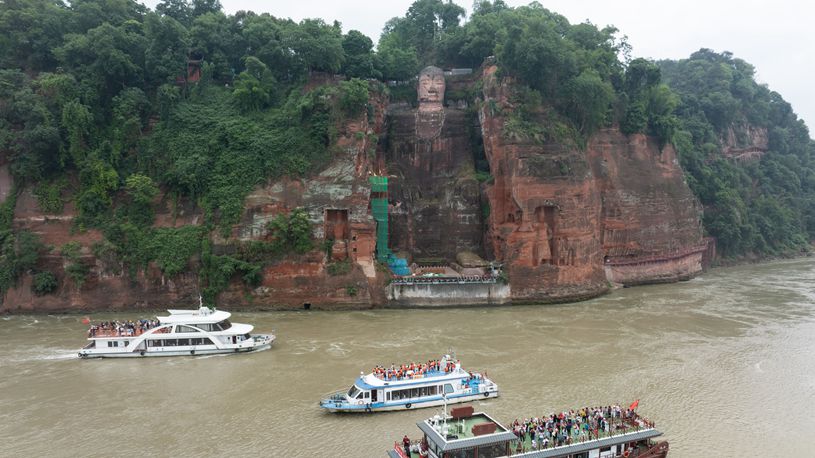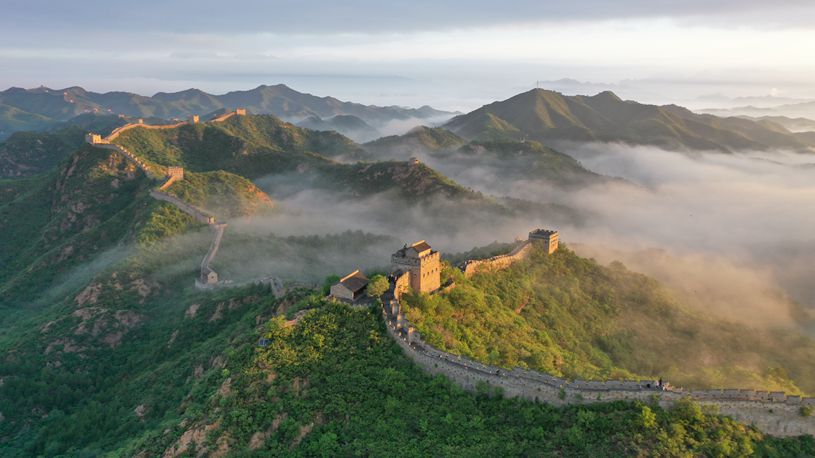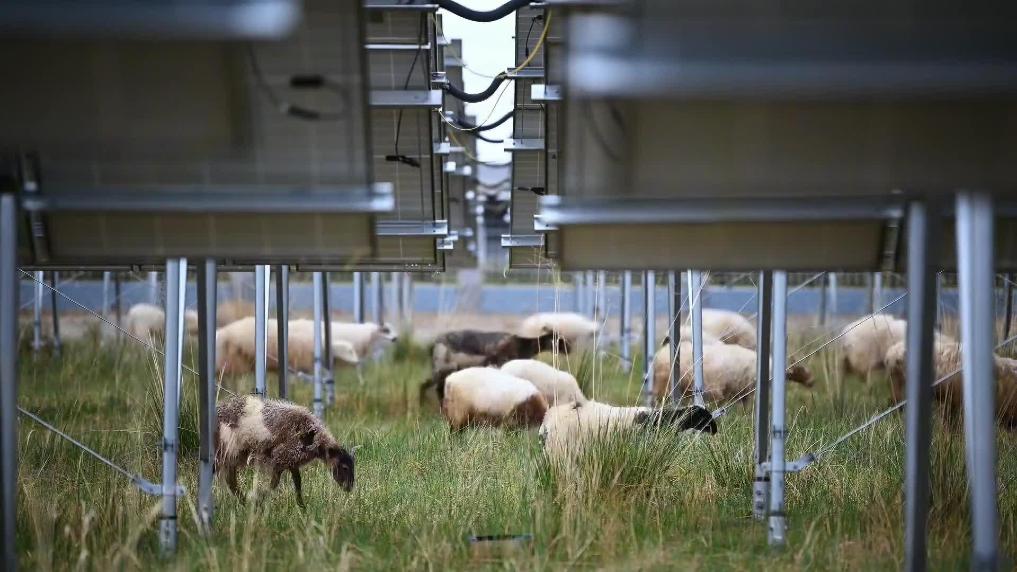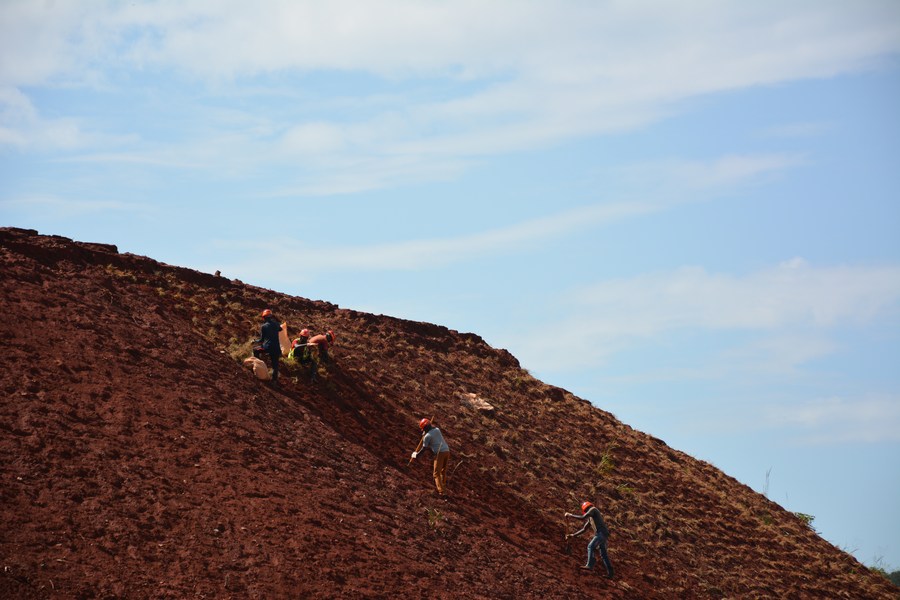
Staff members conduct afforestation and revegetation work near the waste dump at the mining site of the Chinese mining company Zijin Mining in Kolwezi, southern Democratic Republic of the Congo (DRC), March 11, 2019. (Xinhua)
Africa is encountering a host of challenges in its mineral sector, with a lack of systematic geological mapping being one of the major ones, hampering the continent from exploring its rich mineral reserves, UN experts said.
ADDIS ABABA, June 10 (Xinhua) -- Africa is encountering a host of challenges in its mineral sector, with a lack of systematic geological mapping being one of the major ones, hampering the continent from exploring its rich mineral reserves, UN experts said.
A team of experts from the United Nations Conference on Trade and Development (UNCTAD) on Saturday said that Africa holds at least a fifth of the world's metal reserves that are crucial for energy transition including those metals needed for the manufacturing of electric cars.
"Africa boasts some of the largest reserves of world minerals but lacks a systematic geological mapping, which could unveil a much larger resource base and reserves," said Clovis Freire, UNCTAD's Commodity Research and Analysis Section chief, in an interview with Xinhua.
He said Africa presents a promising landscape for potential investment in the extraction and processing of critical energy transition minerals, with the Democratic Republic of the Congo holding about 48 percent of global cobalt reserves and South Africa having about 90 percent of platinum group reserves.
"There is a need for detailed geological surveys and advanced exploration techniques to identify unknown or underexplored mineral deposits, which could offer significant opportunities for new mining ventures and investment across the continent," Freire said.
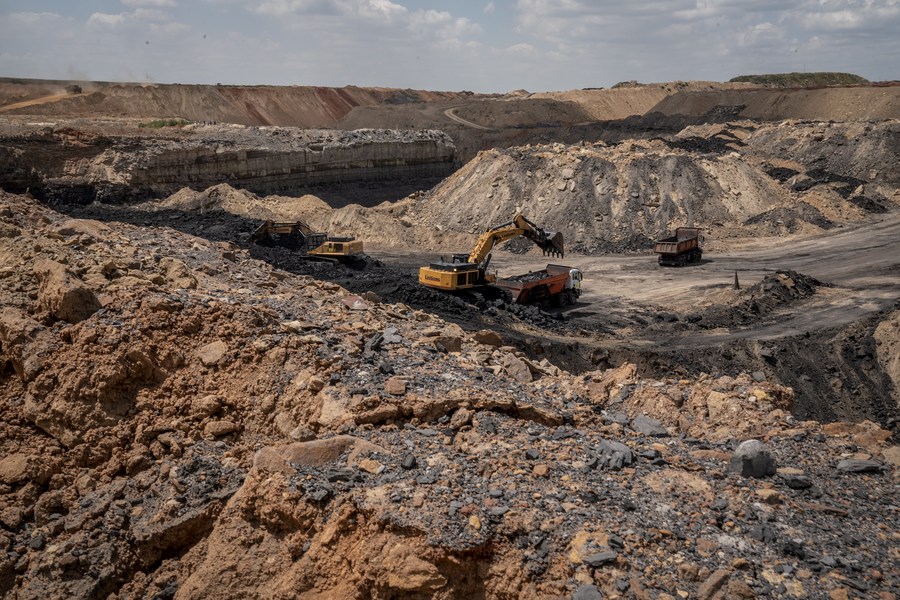
Mining vehicles are seen at a coal mine in Mpumalanga Province, South Africa, March 16, 2023. (Photo by Shiraaz Mohamed/Xinhua)
According to data obtained from UNCTAD, demand for critical energy transition minerals such as lithium, cobalt and copper could increase almost fourfold by 2030.
The expert said as the climate emergency intensifies, demand for critical energy transition minerals will continue surging as they will be needed for renewable energy technologies like solar panels, wind turbines and electric vehicles.
Rachid Amui, another expert of UNCTAD, said that African countries heavily rely on a traditional model where they export raw mineral resources with no or minimum value addition, capturing a small share of benefit within the commodity value chain.
"The traditional mining and trading practices have generated small revenues, minimum employment opportunities, little tax revenues and export earnings for mineral-exporting countries in Africa," he said.
Amui said African countries also face inadequate infrastructure such as poor transportation networks that often hinder easy movement of minerals from extraction sites to export points.
"Many mining sites in Africa are located in areas with unreliable and insufficient energy infrastructure, which can disrupt mining operations and increase costs," said Amui, noting that the shortage of finance, skilled labor and technical expertise has hindered mining operations across the continent.
According to Amui, limited access to advanced mining technology is another significant challenge, often leading to reduced productivity and increased environmental impacts, further complicating the process of tapping and exporting Africa's mineral resources. ■




